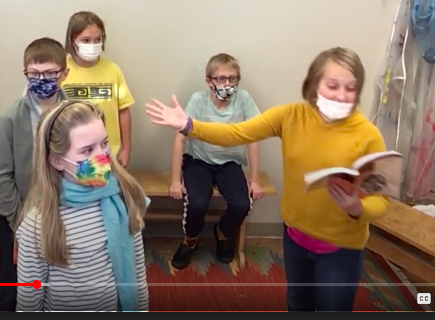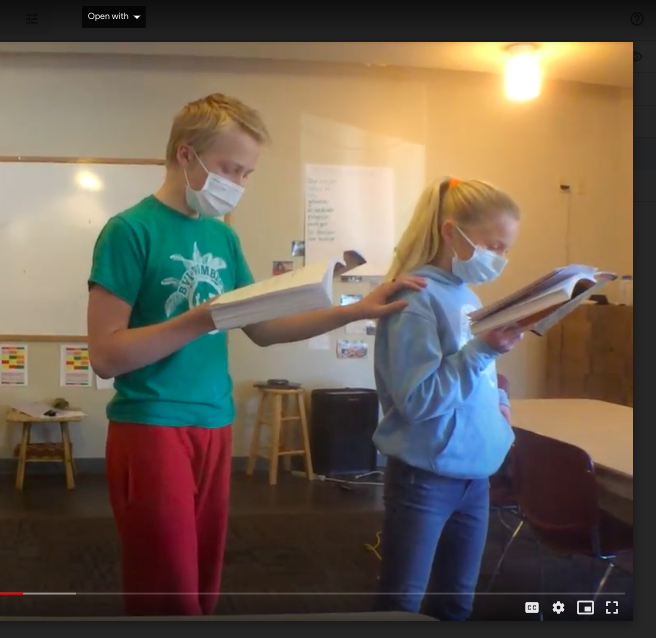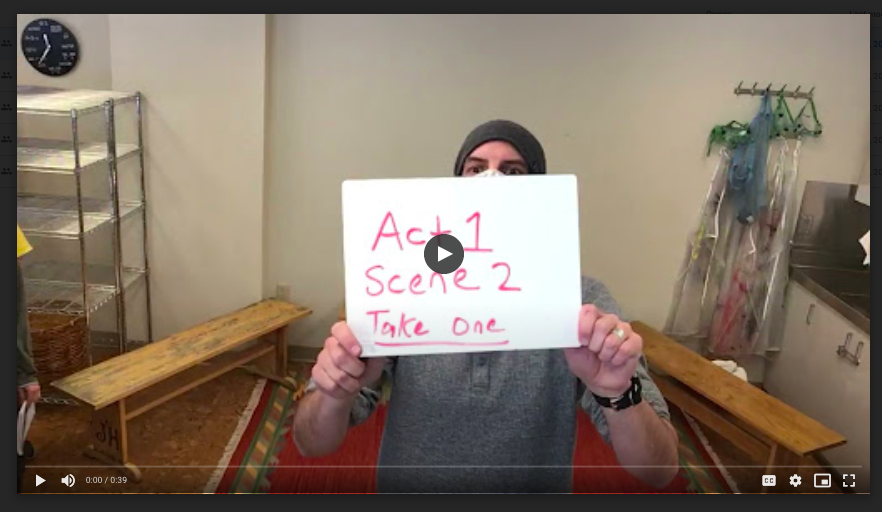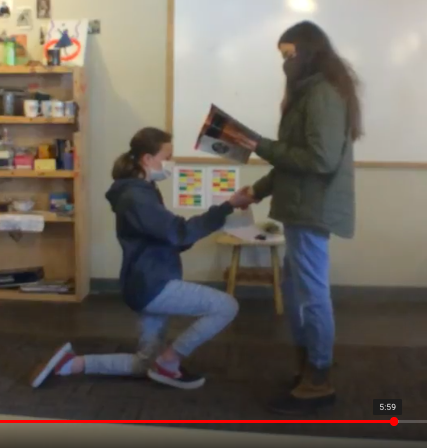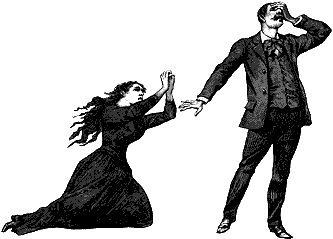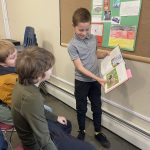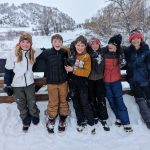Director-remote, what would Shakespeare think?
Emerald Connection, February 7th, 2022
This week, I found myself home on quarantine (a phrase I never used before 2020), wondering how I might possibly instruct theater methods via remote broadcast. The MS began our first week of rehearsal for A Midsummer Night’s Dream, and with the show a mere month and half away, easing in (or even away) was not an option. Fortunately, I had two great advantages, both of which remind me of what is great at the core of SMS: enthusiastic students and excellent colleagues. Both groups adapt on the fly and assist each other in complex problem-solving, skills all the more valuable these days when chaos has become regular. On Tuesday morning, Josh helped me to pipe into the 7-8 class via Google Meets. I was projected onto the big screen, and while the Orwellian image may have seemed odd as I offered suggestions for Act I and then watched the students’ blocking procedures, they responded quite well. Even when the limitations of the audio system made it seem as though the various sounds in the room were being projected underwater, the Rocks were patient with me, considerate of one another, took feedback and made adjustments. The same tendencies continued with the 5th and 6th grade classes, though the audio seemed to further degrade. I think the image of me projected on the wall and craning my neck forward in a vain attempt to better hear their voices may have given my artistic crew some ideas for the play’s backdrop design, but I don’t want to reveal too much of those plans this early. In any case, on day 2, I reversed the application of the tech elements in an experiment for greater efficiency. First, I emailed them all a short ‘quiz’ regarding melodramatic gestures, including a few illustrations circa the 19th century, and the students related each to specific moments in Acts I and II, citing line numbers, which they emailed back to me in reply. Then, each class made one or two short videos, with help from Doug and some gentle substitutes, filming their scenes from a fixed vantage point, and Josh sent me the results over Google Share. That way, I was able to offer specific (non garbled) feedback as typed stage notes. The films were meant to be very rough, as drafts in effect, and they likewise gave the students the opportunity to see themselves from the vantage point of the audience. We could thereby emphasize movement, how the dynamics of the theater are very different than reality, or even film, and why it matters, therefore, to typically face outward toward the audience, rather than speaking directly to other characters in dialogue. Students made further adjustments on Day 3, with the goal of being off book in Act I and some of Act II by Friday. I’m back in person today and am certainly appreciative of the work produced in my absence, and certainly, I credit my colleagues for their excellent assistance in orchestrating some level of order to what could have easily descended into madness. There’s always a bit of theater in any classroom, and last week’s plans were certainly off script. Nonetheless, I saw excellent progression from a cast of students with notable character.
